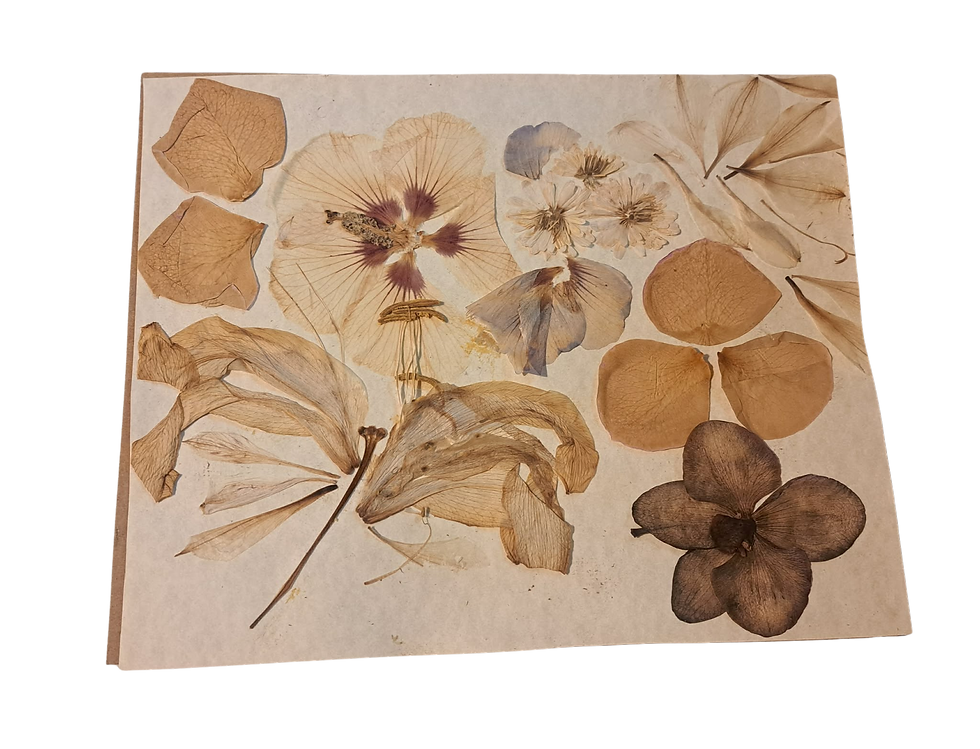ABOUT GMOs
- Dec 9, 2018
- 3 min read
Updated: 4 days ago

Saying no to GMOs = support the bees & our health!
GMO= GENETICALLY MODIFIED ORGANISM
Issues associated with GMOs
The main concern I have associated with GMOs is the use of chemical spray, and how that may impact our health and the surrounding environment- including waterways and wildlife like insects, small rodents, fish, etc.
I acknowledge the societal advantages of higher crop yields made possible by GMO fields—I won't dispute this.
However, the use of Roundup, a glyphosate-based herbicide developed by Monsanto—now Bayer—raises some concerns, as it is among the most extensively used herbicides worldwide. Bayer acquired Monsanto to rebrand the company, which has paid out about $11 billion in claims due to glyphosate being classified as a Group 2A 'probable carcinogen in humans'.
GMO technology basics
A plant is grown from a seed that has been genetically engineered to withstand glyphosate, the primary ingredient in RoundUp herbicide spray.
Glyphosate disrupts the 'shikimate pathway', a 7-step metabolic route used by plants and microorganisms to produce aromatic amino acids. These acids are crucial for these species' survival, causing them to perish within 7-20 days after sufficient exposure.
When a field of GMO crops is treated with RoundUp, the GMO plants survive the spray, while the surrounding weeds are eradicated.
This allows humans to manage large tracts of farmland using tractors and planes, reducing the reliance on manual labor.
It's beneficial that we can feed more people, but are there any downsides?
Disadvantages to sprayed crops
We are assured that glyphosate residue on food does not pose a health risk to us. However, farmers who handle it must wear protective gear, and there is glyphosate in an average mother's breast milk.
We observe negative effects on wildlife. There has been a general decline in pollinators that collect pollen from treated flowers, and local fish in streams with runoff struggle. There is continued research on the impacts of the microbiome of insects and humans and how they are negatively impacted by glyphosate exposure.
In mono-crop farming, the heavy machinery compacts the soil, harming small burrowing creatures. This also impacts the soil's drainage pattern, as the soil turns into dirt or clay. This makes the land less porous, reducing drainage and increasing the likelihood of flooding during heavy rain.
Additionally, the removal of native weeds affects biodiversity in adjacent ecosystems, and the impact on soil microbiome reduces crop resislience to pests and disease.
Without traditional farming methods like crop rotation, natural amendments, and diversity, the soil becomes exhausted, increasing the dependence on fertilizers annually. As well, a well noted side effect of glyphosate is 'nutrient chelation', which solififies the need for increased fertilizer use.
Did you hear that quote by Einstein? "If the bee disappeared off the face of the Earth, Man would only have four years left to live".

Why organic?
Traditional practices of agriculture, such as crop rotation, manure, cover crops, crop pairing, etc. all have the goal of nurturing, preserving and promoting quality soil and a dynamic ecosystem. This in turn produces a more nutritious and resilient plant. One that doesn't need buckets of fertilizer, herbicide and pesticide to survive!
Did you know? To grow organic produce in a field that has been exposed to chemical spray legally it must be detoxed for 3 years.
How can you make a difference?
Eat less processed foods
Support locally grown and produced foods
Grow things at home
Look for the GMO-Free logo
Support local bee keepers
Oh, and by the way, Nature IS Health products contain no GMOs!
Thanks for reading,
Samantha

.png)






Comments